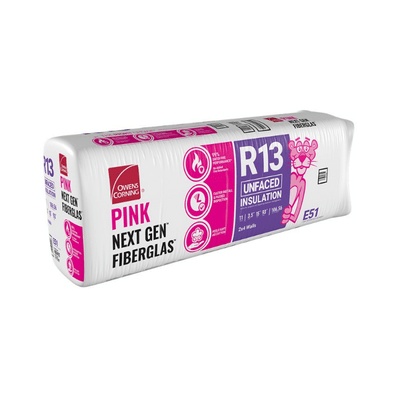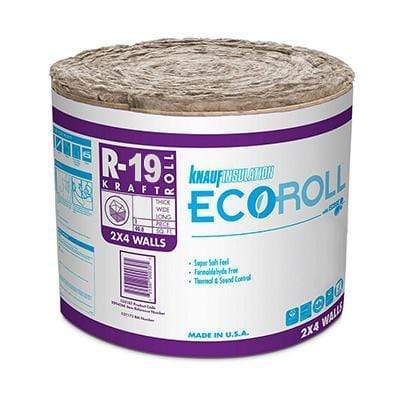-
Owens Corning R-11 Kraft Faced Fiberglass Insulation Batts - All Sizes
Vendor:Owens CorningfromRegular price $391.91Sale price $391.91 Regular priceUnit price per$0.00 -
Owens Corning R-11 Unfaced Fiberglass Insulation Batts - All Sizes
Vendor:Owens CorningfromRegular price $328.24Sale price $328.24 Regular priceUnit price per$0.00 -
Owens Corning R-13 Kraft Faced Fiberglass Insulation Batts - All Sizes
Vendor:Owens CorningfromRegular price $410.71Sale price $410.71 Regular priceUnit price per$0.00 -
Owens Corning R-13 Unfaced Fiberglass Insulation Batts - All Sizes
Vendor:Owens CorningfromRegular price $321.65Sale price $321.65 Regular priceUnit price per$0.00 -
Owens Corning R-15 Kraft Faced Fiberglass Insulation Batt - All Sizes
Vendor:Owens CorningfromRegular price $397.09Sale price $397.09 Regular priceUnit price per$0.00 -
Owens Corning R-15 UnFaced Fiberglass Insulation Batts - All Sizes
Vendor:Owens CorningfromRegular price $404.83Sale price $404.83 Regular priceUnit price per$0.00 -
Owens Corning R-19 Kraft Faced Fiberglass Insulation Batts - All Sizes
Vendor:Owens CorningfromRegular price $295.23Sale price $295.23 Regular priceUnit price per$0.00 -
Owens Corning R-19 Un-Faced Fiberglass Insulation Batts - All Sizes
Vendor:Owens CorningfromRegular price $275.88Sale price $275.88 Regular priceUnit price per$0.00 -
Owens Corning R-21 Kraft Faced Fiberglass Insulation Batts - All Sizes
Vendor:Owens CorningfromRegular price $423.13Sale price $423.13 Regular priceUnit price per$0.00 -
Owens Corning R-21 Un-Faced Fiberglass Insulation Batts - All Sizes
Vendor:Owens CorningfromRegular price $375.65Sale price $375.65 Regular priceUnit price per$0.00 -
Owens Corning R-30 Unfaced Fiberglass Insulation Batts - All Sizes
Vendor:Owens CorningfromRegular price $231.52Sale price $231.52 Regular priceUnit price per$0.00 -
Owens Corning R-30 Kraft Faced Fiberglass Insulation Batts - All Sizes
Vendor:Owens CorningfromRegular price $286.19Sale price $286.19 Regular priceUnit price per$0.00 -
Owens Corning R-38 Kraft Faced Fiberglass Insulation Batts - All Sizes
Vendor:Owens CorningfromRegular price $256.24Sale price $256.24 Regular priceUnit price per$0.00 -
Owens Corning R-38 Unfaced Fiberglass Insulation Batts - All Sizes
Vendor:Owens CorningfromRegular price $223.15Sale price $223.15 Regular priceUnit price per$0.00 -
Knauf Ecoroll R-19 Kraft Faced Fiberglass Insulation Roll - All sizes
Vendor:KnauffromRegular price $227.49Sale price $227.49 Regular priceUnit price per$0.00 -
Owens Corning R-49 Kraft Faced Fiberglass Insulation Batts - All Sizes
Vendor:Owens CorningfromRegular price $372.34Sale price $372.34 Regular priceUnit price per$0.00 -
Knauf Ecobatt R-49 Kraft Faced Fiberglass Insulation Batts - All Sizes
Vendor:KnauffromRegular price $332.28Sale price $332.28 Regular priceUnit price per$0.00 -
Knauf Ecobatt R-19 Unfaced Fiberglass Insulation Batts - All Sizes
Vendor:KnauffromRegular price $274.53Sale price $274.53 Regular priceUnit price per$0.00
Fiberglass Insulation Wholesale
Do you need to insulate your house and you’re looking for information about fiberglass insulation? Fiberglass insulation has been a popular insulation option over the years and for good reason. You can get in touch with Insulation4US if you’re looking for a fiberglass insulation solution. Fiberglass: Usually consists of fine fibers. It is an insulation option that is found in the majority of homes in the United States. It is commonly applied in two different types of insulation – loose-fill and blanket which can be either fiberglass batt insulation or fiberglass roll. It can also be found as duct insulation and rigid boards. Nowadays manufacturers produce fiberglass medium and high-density fiberglass insulation products with a higher R-Value compared to standard batts. The U.S Department of Energy allows for fiberglass to be placed in floors, ceilings, and unfinished walls. It can be fitted between beams, joists, and studs.
How Insulation Works
Fiberglass helps in slowing the spread of sound, cold and heat in structures. This made possible by the pockets of air found in the fiberglass material. Rooms are kept cool during the summer and warm during summer as a result.
R-Value
R-Value can be described as the endurance of the insulating material to heat flow. This means that the higher the R-Value, the greater the insulating capability of the material. Fiberglass insulation can be a DIY project because there are not a lot of complications involved. It is mainly suited for joist and stud spacing. You can install fiberglass in crawl spaces, attic, open walls, and rim joists. You can get it in a blanket form which is usually referred to as batts. Fiberglass insulation can help with cutting down the cost of energy because it is resistant to conduction heat. Working with a pro installer will ensure that there are no potential problems down the line. Fiberglass insulation also comes in bags that can be blown into the attic.
Fiberglass insulation is made from recycled glass with an additive in the form of a chemical binder to bind the glass fibers together. This binding process forms the glass into a fiber / wool consistency allowing the completed product to be manipulated into a roll or a batt type product. Each product type looks and feels like its similar to a mate and some are more dense than others allowing them to achieve higher or lower R-values.
This process of producing glasswool insulation was first invented by Games Slayter in Owens Illinois in 1933. Owens Filled for the Patent in 1933 and Games was named as co-inventor. This new process was given the name as Glasswool and still to this day is widely used around the world as a very efficient way of insulating a property.
Glasswool allows for small pockets of air to be trapped within the material to slow down the movement of air through the material. This slow down of air causes the air to heat up within the insulation and slowing down the movement of cold or hot air through the material.
The more dense that this material is the more effective the slowing down of movement of air or gasses through the material will be, hence a greater r-value or thermal resistance. The thermal resistance of glasswool is measured in how long it takes for the movement of gases through the material. Glasswool disrupts this moved of gases through the material. Other products that use this type of concept is mineral wool, styrofoam and more household names like wetsuits and fleece jackets or even layer clothing which will trap air use this method of insulation.
The process in which glasswool is manufactured begins with a recycled glass heated to in excess of 1450°C and the glass is converted/turned into very fine glass fibers. This process of producing the glass fibers is, in essence, the same process and making cotton candy, with the glass fibers pushed through very fine wire mesh while being blown. The glass fibers then cool once hitting the air and bind together with the binding agent that was added during the blowing process. The fiber mat that is produced out the other end is then heated to 200°C to allow the resin to polymerize. The fiberglass mats are then cut into different thicknesses and widths in the form of batts or rolls depending on the density of the product wrapped and palletized for distribution.
The applications of fiberglass can be of many forms and the one use that is of most interest to us is, of course, the insulation element of the product. After the product is wrapped and palletized it is then shipped out to various distribution locations across the US. From there our contractors and our DIYers will purchase the insulation for its final leg of the journey before installation. Fiberglass is used in a wide array of applications from floors, crawlspaces, walls, ceilings, roofs and residential to industrial applications. The products will come precut to suit different applications such as 2x4 walls or 2x6 walls and allow for 8ft or 9ft ceilings etc. Fiberglass insulation also comes in various thicknesses to allow for attics whereby 12” or more insulation is required and in some cases up to 16” is required. All of these variant applications shows the versatility of fiberglass insulation and its array of applications.
It's always important to be aware of the handling difficulties that accompany fiberglass insulation. Its recommended that the user installing the insulation wears a mask and coveralls with gloves. Fiberglass insulation can cause an irritant to the skin and airborne fibers can be inhaled into the lungs cause and irritation in the throat causing coughing. If you are an installer handling this product on a daily basis it is highly recommended that you were a very good dust mask. For a one time user a normal dust mask will suffice but remember to wear your coveralls and gloves. Irritation can vary from person to person and in some cases, some people do not get any irritation to fiberglass but its always good to use protection as a precaution. Other areas of irritation are the eyes and nose causing coughing and redness around the eyes. As long as safe work practices are adhered to when installing fiberglass insulation there should be no harmful side effects.

 Rated Excellent
Rated Excellent




































